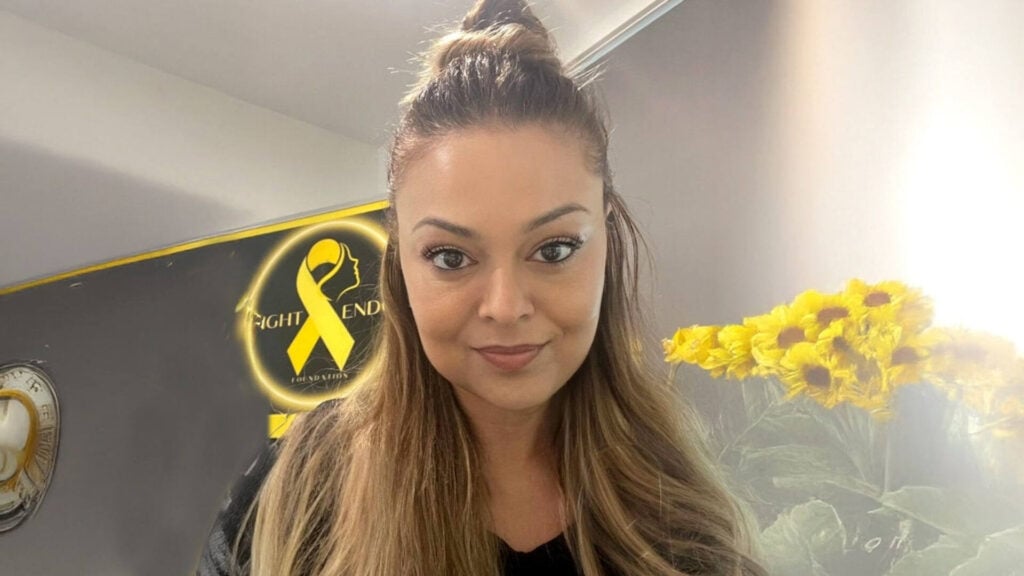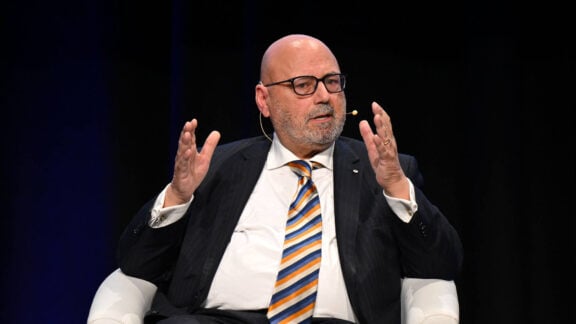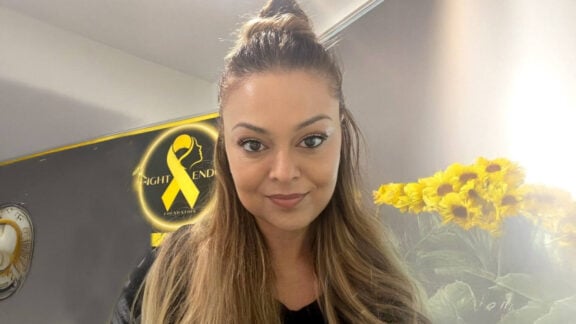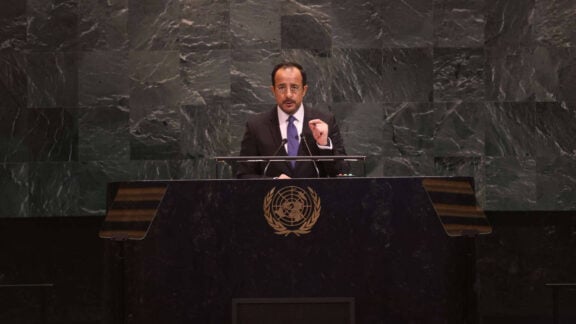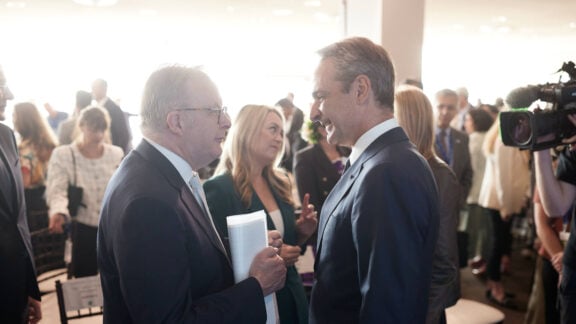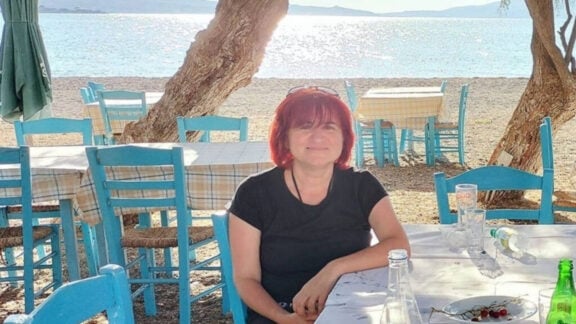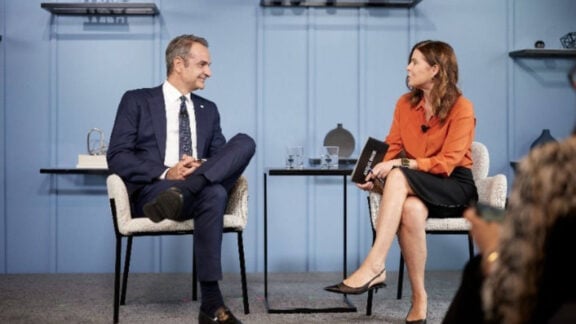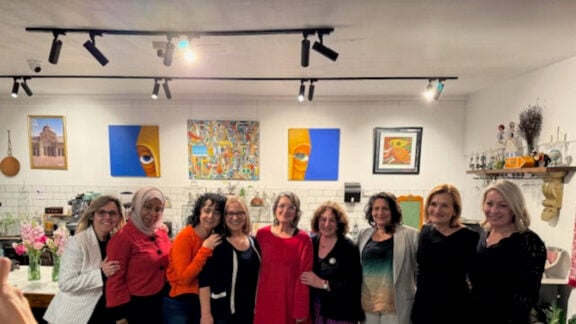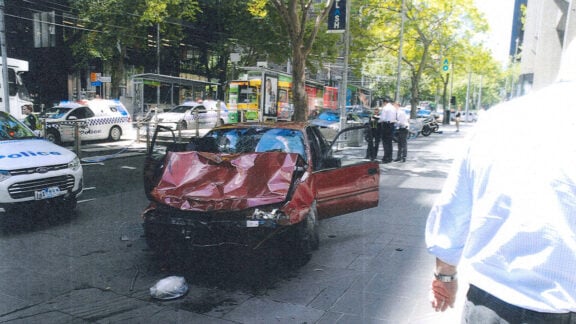“I always say that I was the guinea pig, a part of the lost generations of women experimented on, who suffered with endometriosis in silence.”
Marina Kyriakou, Founder and Chair of the Fight ENDO Foundation, told Neos Kosmos about the decades of pain she endured, the surgeries she underwent, and the toll on her fertility, before finally receiving a diagnosis, more than twenty years later.
“It was too late for me. And extremely hurtful that I couldn’t have kids. But the best thing I can do now, as long as I’m here, is advocate for women for new policies, and create systemic change around the impact of endometriosis on women’s health and daily life.”
For over two decades, Kyriakou worked in healthcare leadership. Yet her most defining chapter began with her own diagnosis. “After living with debilitating symptoms since the age of 16, I was finally diagnosed with stage IV endometriosis at 40. That journey, marked by pain, confusion and dismissal, ignited a mission. I founded Fight ENDO Foundation & Adenomyosis Australia to ensure no woman feels invisible, unheard or alone.”
Since then, hundreds of women have found clarity, advice and comfort through the foundation as they navigate their own journeys with endometriosis.
“Our mission is to stop women suffering. We focus on three pillars: advocacy, education and support. We work to reduce diagnostic delays, improve access to care and raise awareness across society. We also collaborate with Adenomyosis Australia, whose work has been instrumental in bringing visibility to this often-overlooked condition. Together, we’re building a united front for women’s health.”
The silence around pain
An estimated 1 in 7 girls and women live with endometriosis, a chronic condition where tissue similar to the lining of the uterus grows outside the uterus, causing inflammation and pain.
And although awareness has grown, Kyriakou says stigma still surrounds the pain women experience in workplaces, schools, and communities.
“In many cultures, including the Greek community, women’s pain is spiritualised, hidden, or endured quietly. There’s stigma around reproductive health, and that silence can be deeply harmful.”
Growing up in a Greek family, she didn’t speak about her suffering. “That’s something you don’t discuss, because it is considered your private business. I survived by pushing through and adapting to it. Like so many women, I normalised the pain and learned to function while in distress. It wasn’t resilience. It was survival. And it came at a cost.”

In those days, painful periods were brushed off as “just part of being a woman.” She was told “It’s hormonal”, “You’re too young”, “Try the pill”, and given band-aid solutions, without real investigation.
Friends, family and even doctors didn’t question it. “That lack of awareness is part of the systemic issue we are fighting today.”
Even today, women wait 7 to 10 years on average for a diagnosis. “That delay is unacceptable and preventable,” she says, pointing to GP training gaps, dismissal of symptoms, and lack of specialist access, all of which can crush a woman’s dream of having a family.
Fighting for change
There has been progress, she acknowledges. “Public campaigns and courageous voices have helped. But we need policy reform, medical training and cultural change, not just sympathy.”
Since starting the foundation in 2019, she has heard from countless women frustrated after being dismissed by their doctors. “Through our network, we’ve connected them with specialists, helped them secure a proper diagnosis, and supported them on their fertility journeys.”
“I’m not a doctor. I’m just a woman who’s had a terrible lived experience with this disease. But the most rewarding part of my work has been creating these connections, and helping women take control before the disease takes over their lives.”
One of the foundation’s proudest achievements has been the launch of the Rural Reach Initiative, which delivers education, support, and care to women in remote and underserved regions of Australia.
It all began when the foundation received a message from Tanya, a young woman in a small outback town who had been suffering in silence for over a decade, with no access to specialists and little knowledge of endometriosis.
“Through Rural Reach, Fight ENDO mobilised trained nurses and educators to visit regional communities, host workshops, and provide direct support. Tanya was one of the first to benefit. She finally received a diagnosis, began treatment, and later joined the Foundation as a community member.”
Since its launch, the initiative has reached over 2,000 women across rural Australia, trained over 50 local health workers, and helped reduce delays in diagnosis by up to three years in targeted regions. Tanya now leads monthly support circles in her town, offering hope and guidance to others who once felt alone.
Looking ahead
Kyriakou is optimistic about systemic reform. She awaits the findings of the Victorian Government’s first inquiry into women’s pain, launched last year, hoping it will lead to lasting change.
“We hope for mandatory menstrual health education in schools, specialist training for GPs and frontline workers, workplace protections for women with chronic pain, and increased research funding into endometriosis and adenomyosis.”
She also stresses the need for practical measures: flexible work arrangements, menstrual leave policies, pain management and mental health support, and corporate education programs to foster empathy and inclusion.
Next year, Fight ENDO will roll out a national education initiative, delivering tailored workshops in schools and workplaces, to teach students and employees to recognise symptoms, support affected individuals, and dismantle stigma,” Kyriakou says.
There is not enough education for young girls about what pain is not normal.
“Girls deserve to know their bodies and understand that pain is a signal, not a punishment. Early education can lead to early intervention and better outcomes. Endometriosis and adenomyosis can impact fertility, yet many women learn this too late.”
